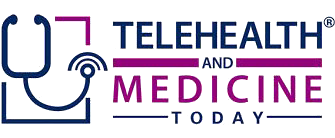Surmounting Barriers to Healthcare Data and Information: International Case Studies
Objective: In this article, the authors review the progress in healthcare interoperability from 2010 to 2023 from an international perspective. Countries covered here include the Republic of China (Taiwan), the Republic of Croatia, the Republic of Estonia, and the Commonwealth of Australia. Interoperability, in the context of this paper, is “...
By Bharath Perugu, MBA, Varun Wadhwa, BS, Jin Kim, ME, Jenny Cai, BS (Candidate), Audrey Shin, BS (Candidate), Amar Gupta, MBA/PhD
Surmounting Barriers to Healthcare Data and Information: Cases in Point, the U.S. Experience
Objective: The authors review the progress in healthcare interoperability from 2010 to 2023 in the United States. Interoperability, in the context of this paper, is “the ability to share information across time and space from multiple devices, sources, and organizations”, as defined by the IEEE (Institute of Electrical and Electronic En...
By Bharath Perugu, MBA, Varun Wadhwa, BS, Jin Kim, ME, Jenny Cai, BS (Candidate), Audrey Shin, BS (Candidate), Amar Gupta, MBA/PhD
Pragmatic Approaches to Interoperability – Surmounting Barriers to Healthcare Data and Information Across Organizations and Political Boundaries
Objective This paper provides a review of the landscape of interoperability efforts in healthcare from 2010 to 2023, in the US and abroad. Interoperability, in the context of this paper, is “the ability to share information across time and space from multiple devices, sources, and organizations”, as defined by the IEEE (Institute of Ele...
By Bharath Perugu, MBA, Varun Wadhwa, BS, Jin Kim, ME, Jenny Cai, BS (Candidate), Audrey Shin, BS (Candidate), Amar Gupta, MBA, PhD
Medical Boards: Impact of Growing Virtual Care and Need for Integrated Approach to Enhance Quality and Safety
The increased amount of virtual care during the COVID-19 pandemic has exacerbated the challenge of providing appropriate medical board oversight to ensure proper quality of care delivery and safety of patients. This is partly due to the conventional model of each state medical board (SMB) holding responsibility for medical standards and oversight o...
By Amar Gupta, John Halamka, Lauren Park, Naomi Kim, Veda Donthireddy, Mariam Dogar, Dinesh Patel
Fraud and Credentialing in Telehealth and Medicine
This panel presents a candid discussion on laws regulating audio-only services, cross-state licensing and telehealth payment parity. ...
By Gupta Amar, Gary Cantrell, Humayun J. Chaudhry
Enhancing Quality of Healthcare and Patient Safety: Oversight of Physician Assistants, Nurses, and Pharmacists in Era of COVID-19 and Beyond
In the age of digitization, telemedicine services are utilized more than ever, and this trend affects healthcare as well. Although the utilization of technology serves as a benefit in allowing more access to care, COVID-19 has identified some of the weaknesses and discrepancies of the system. The increase in usage of technology has shed light on an...
By Lauren W Park, Dr. Amar Gupta
Medicare Telehealth Pre and Post-COVID-19
ABSTRACT The COVID-19 pandemic led to temporary relaxations for telehealth with respect to physician licensure, geographic location, and eligible sites for reimbursement. Earlier policies had impacted the rate of adoption of telehealth and retarded the ability to derive full benefits related to cost, access to care, and quality of care. This aspect...
By Sophia Albanese, Amar Gupta, Ilina Shah, Joanna Mitri
Sixteenth International Conference of Telemedicine Society of India: Experiences and Lessons Learnt for Evolving Transformation at a Global Level
...
By Amar Gupta
Predictive Modeling for Telemedicine Service Demand
Introduction: Emergency teleneurology care has grown in magnitude, impact, and validation. Stroke is a leading cause of death in the US and the timely treatment of stroke results in better outcomes for patients. Teleneurology provides evidence-based care to patients even when a board-certified neurologist is not physically on site. Determining...
By Agni Kumar, Nancy Hung, Yuhan Wu, Robyn Baek, Amar Gupta
Feasibility and Effectiveness of Mobile App for Active Case Finding for Tuberculosis in India
Background: Tuberculosis (TB) is an infectious disease with 2.8 million cases and 480,000 deaths each year in India. The city of Indore alone with a population of 3.5 million had 7,839 identified TB cases in 2017. However, about two to three thousand additional cases remain unidentified per district officials. The unidentified cases lead to an ende...
By Weijia Zhang, Mariam E. Dogar, Monika Jain, Edwin Rodriges, Sangeeta Pathak, Salil Bhargava, Amar Gupta, Manoj Jain
